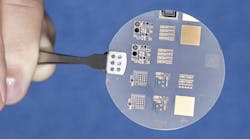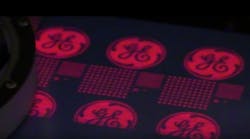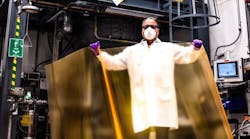The financing was led by Blackbird Ventures and (SHW)2 Enterprises with a small group of private investors. Harvey White, chairman of (SHW)2 Enterprises, has joined the organization as chairman of the board. White is a co-founder and former president and COO of Qualcomm, as well as the founder and former chairman and CEO of Leap Wireless. “The technology is strong, and this round of financing should position us well for an additional round sometime in mid-2008,” said White.
According to Quanlight CEO Neil Senturia, the financing will be used to take the company from research and development to wafer production. Quanlight has developed novel material science that creates LEDs with increased stability and brightness.
Quanlight's patent-pending technology was originally developed at the University of California, San Diego (UCSD) by Charles Tu and Vladimir Odnoblyudov, Quanlight holds an exclusive license to commercialize the technology from UCSD.
Quanlight believes that its technology solves three problems in the red LED world. “We decrease the cost of manufacture, we increase stability at high drive currents, and we anticipate increasing brightness by a factor of more than two times,” said Odnoblyudov.
Most commercial yellow, amber and red (YAR) LEDs are manufactured using the AlGaInP material system, while blue and green LEDs use InGaN materials. Quanlight is working on the "dilute nitride" InGaNP material system, where the proportion of N atoms in the lattice is a few percent.
Where current LEDs fall in efficiency as the drive current is increased, Quanlight says that LEDs made using its material will remain very efficient at much higher current loads. Also, color shift with changing temperature is greatly reduced using Quanlight LEDs, resolving another problem that hinders the current technology.
Phil White, CFO of Quanlight, says that current material systems used in YAR LED are nearly 20 years old and it is no longer possible to cost-effectively increase the capabilities of such LEDs. "Our system is a disruptive technology that allows our customers to make a quantum shift in their product offerings. As the market demands higher performance and lower cost from this portion of the LED market, Quanlight's technology provides a technical road map to achieving these goals."
White says that Quanlight's unique material system enables the elimination of major manufacturing steps, which will reduce the labor and material cost while increasing yield. This might include the wafer-bonding steps that are often used to assist the extraction of light from AlGaInP LEDs. White confirms that Quanlight plans to sell device wafers, enabling LED manufacturers to utilize the new technology.
Before then, in order to compete with well-established and fully commercialized red LED technology, Quanlight will have to deal with factors such as establishing the long-term reliability and lifetime of the technology, and ensuring that high-volume manufacturing infrastructure issues are dealt with.




